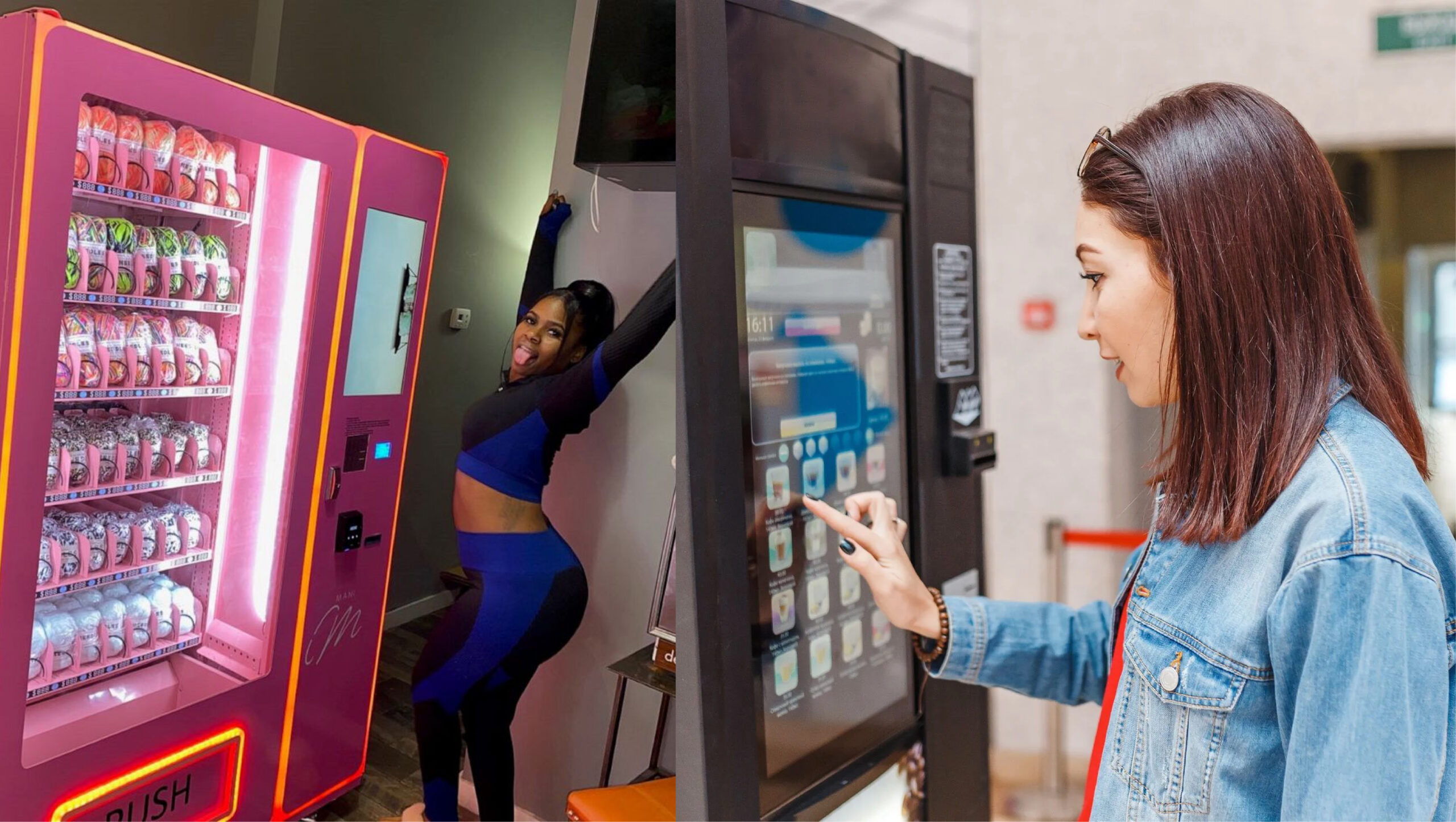In today’s fast-paced world, convenience is king. From food to everyday essentials, people are increasingly seeking ways to get what they need quickly and easily. This shift in consumer behavior has made the vending machine business an attractive opportunity for aspiring entrepreneurs. Offering a low-maintenance, scalable, and relatively straightforward way to start a business, vending machines can generate passive income while providing convenience to customers. In this detailed guide, we’ll explore the ins and outs of the vending machine business, including how to get started, what to consider when choosing products, locations, and machines, and strategies for scaling and growing your business successfully.
Understanding the Vending Machine Business Model
The vending machine business model revolves around offering products in an automated, self-serve manner. Customers can purchase snacks, drinks, or even niche items like electronics or beauty products directly from machines. Vending machines operate 24/7, making them a consistent and dependable source of income with relatively little human intervention once set up. Because of their low overhead costs, vending machines have become a popular business venture for both full-time entrepreneurs and those looking for additional passive income.
While the vending machine business may seem simple on the surface, success requires careful planning, thoughtful product selection, and strategic machine placement. With the right approach, vending machines can become a steady and reliable income stream that’s easily scalable over time.
Starting a Vending Machine Business: First Steps
Before diving into the vending machine business, it’s important to have a clear understanding of the market and a well-defined plan. Here are some key steps to get started:
1. Research and Planning
The first step in starting any business is conducting thorough research. In the vending machine business, this includes understanding the local market, identifying potential competitors, and determining which types of vending machines and products will work best in your chosen locations.
You’ll also need to decide on a business model. Some vending machine operators purchase their own machines and manage everything themselves, while others may rent or lease machines from vending machine companies. Another option is franchising, where you operate under an established vending business brand. Each of these models has its own advantages and disadvantages, so it’s important to choose the one that best fits your goals and resources.
2. Choosing the Right Type of Vending Machines
Not all vending machines are created equal, and choosing the right type of machine is crucial to your business success. Vending machines generally fall into the following categories:
- Snack and Beverage Machines: The most common type of vending machine, these are used to sell snacks, soft drinks, bottled water, or energy drinks.
- Food Machines: These machines dispense more substantial food items, such as sandwiches, salads, or even frozen meals. These are commonly found in workplaces, hospitals, and schools.
- Specialty Machines: Some vending machines cater to niche markets, offering items such as personal care products, electronics, beauty products, or even hygiene supplies like face masks and hand sanitizers.
Your choice of machine should be informed by your target market. For example, snack and beverage machines tend to perform well in high-traffic areas like offices or transportation hubs, while specialty vending machines may find a home in gyms, shopping malls, or beauty salons.
3. Selecting Products for Your Machines
Once you’ve chosen your vending machine type, the next step is to decide on the products to stock. The key to success in this business is offering items that cater to your location’s demographic. For example:
- In schools: Chips, candy, and healthy snack options like granola bars are often in high demand.
- In offices: Caffeinated beverages like coffee or energy drinks, healthy snacks, and grab-and-go lunch options are likely to perform well.
- Gyms or fitness centers: Protein bars, bottled water, electrolyte drinks, and healthy snacks are ideal choices.
Paying attention to trends can also help you stay ahead of the competition. For instance, as consumers become more health-conscious, offering organic or low-calorie snack options could appeal to a broader customer base. Additionally, providing cashless payment options or integrating contactless payment systems can significantly boost your machine’s appeal in today’s increasingly cashless world.
4. Securing Locations
Location is one of the most critical factors in the success of a vending machine business. The more people that pass by your machine, the higher your sales potential. Some ideal locations include:
- Office buildings
- Schools and universities
- Hospitals and medical centers
- Apartment complexes
- Public transportation hubs
- Gyms and fitness centers
- Hotels and motels
When scouting locations, consider both foot traffic and the needs of the people who frequent the area. Additionally, you may need to negotiate a deal with the owner of the property, who may charge a commission or flat fee in exchange for placing your machine on their premises.
5. Purchasing or Leasing Machines
After identifying ideal locations, it’s time to acquire vending machines. You can either purchase new or used machines or opt for leasing them. Each option has pros and cons:
- Buying: Buying machines outright involves a higher upfront cost but allows you full ownership and control over the machine. Once you own the machines, you’ll also keep 100% of the profits.
- Leasing: Leasing vending machines reduces the initial investment but typically involves monthly fees and potentially a long-term commitment. While leasing may be ideal for beginners, it could reduce your overall profits in the long run.
Be sure to compare prices and warranties when purchasing vending machines and work with reputable suppliers. Investing in reliable, high-quality machines can save you maintenance costs and reduce downtime over time.
Managing and Operating a Vending Machine Business
Once your machines are installed and stocked, your primary responsibility will be maintaining them and keeping the products fresh. Here are a few important operational factors to consider:
1. Maintenance and Refilling
Regularly checking your machines to ensure they’re functioning properly is critical. Machines can sometimes malfunction, resulting in lost sales and frustrated customers. By staying on top of maintenance, you can avoid unexpected breakdowns.
Additionally, refilling your machines with fresh products is essential to keeping customers satisfied. Pay close attention to which items sell the fastest and which don’t perform well. This will help you adjust your inventory to better meet demand.
2. Tracking Inventory and Sales
To optimize your vending machine business, it’s essential to track inventory and sales closely. You can do this manually, but many modern vending machines come equipped with remote monitoring systems. These systems allow you to view your machines’ inventory levels and sales in real-time, helping you know when to restock and which products are performing best.
3. Customer Service
Even though vending machines are automated, customer service is still important. Ensure that your machines are clean, well-maintained, and stocked with quality products. If issues arise, such as items getting stuck or machines malfunctioning, providing a way for customers to contact you for a refund or resolution can help you build a positive reputation.
Growing and Scaling Your Vending Machine Business
Once you’ve established a few machines and have a consistent flow of income, you can start thinking about scaling your vending machine business. Here are some strategies to consider:
1. Expanding Your Network of Locations
One of the easiest ways to scale is by expanding the number of locations where you place vending machines. As your business grows, you can leverage your existing relationships to secure new locations in different markets, such as large office complexes, factories, or public spaces. Each new location increases your potential revenue and solidifies your business’s reach.
2. Diversifying Product Offerings
As your business expands, you can experiment with different products to attract a broader audience. Offering healthier alternatives, vegan snacks, or locally sourced items can help differentiate your machines from competitors.
3. Leveraging Technology
Investing in modern vending machines with advanced features such as cashless payment systems, mobile app integration, and touchscreen displays can greatly improve the user experience. Offering convenience and multiple payment options can attract a wider range of customers, including those who rarely carry cash.
4. Hiring and Delegating
As your vending machine business grows, you may want to hire employees or contract individuals to handle restocking, maintenance, and scouting new locations. Delegating these tasks will allow you to focus on scaling and expanding your business further.
Challenges and Considerations
While the vending machine business offers many advantages, it’s not without its challenges. Competition, theft, vandalism, and fluctuating demand can all impact your bottom line. To stay ahead, make sure to constantly evaluate the performance of your machines and make necessary adjustments.
Additionally, location contracts and partnerships with property owners can sometimes be difficult to negotiate. Offering a fair commission or revenue-sharing model can help you secure prime locations without jeopardizing profitability.
Conclusion: A Profitable and Scalable Opportunity
The vending machine business offers an excellent opportunity for those looking to start a low-maintenance, scalable venture. By understanding the key factors of success choosing the right machines and products, securing high-traffic locations, and maintaining efficient operations you can build a profitable vending machine empire. With the growing demand for convenience and accessibility, the vending machine business is a promising opportunity for aspiring entrepreneurs looking to break into the world of business ownership.
Read more: Where Is Medvedev From? Exploring the Background and Roots of Tennis Star Daniil Medvedev




